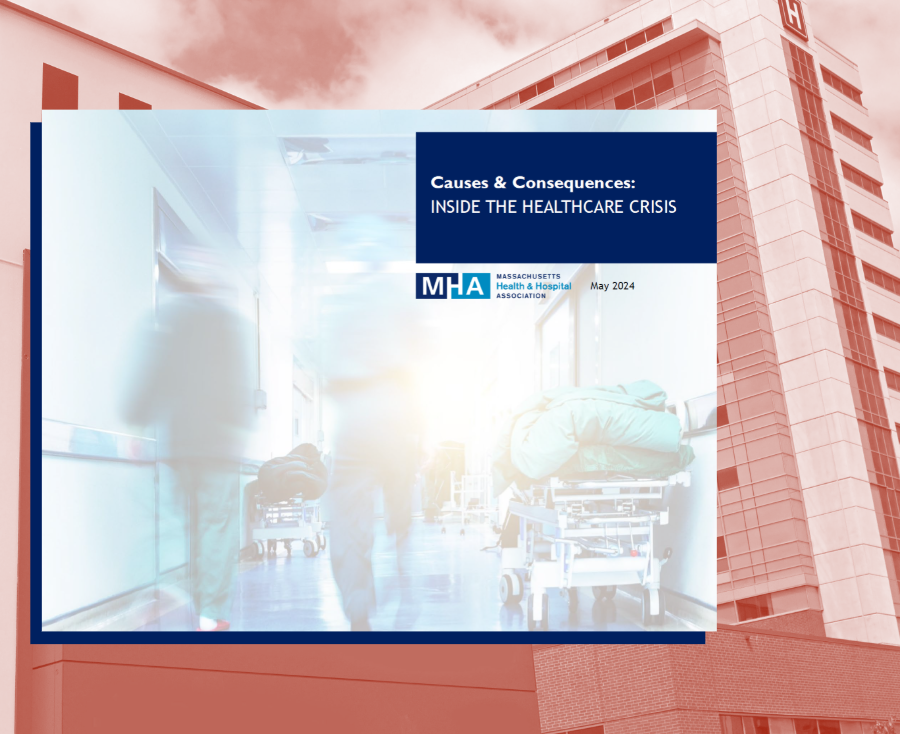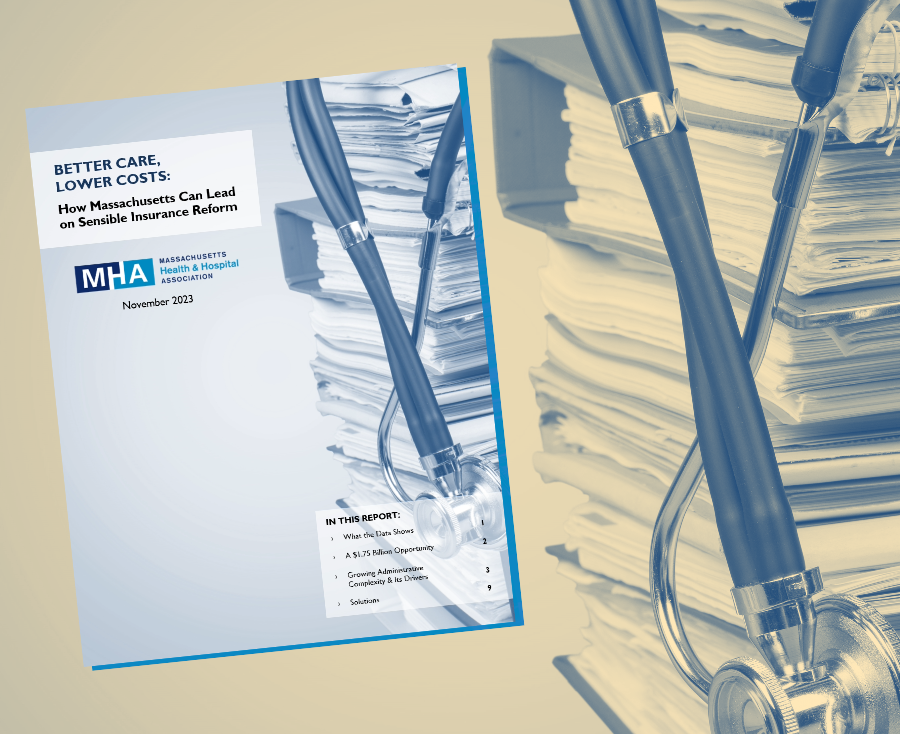
Our Focus
-

Care.
Promoting world-class care delivery.
-

Access.
Making care more accessible and equitable.
-

Cost.
Keeping affordability at the forefront.


 Massachusetts Health & Hospital Association
Massachusetts Health & Hospital Association

Making care easier to reach and easier to afford for every patient.
Furthering access to high-quality healthcare for all members of all communities is a core MHA goal. Accessible, convenient medical treatment is a lynchpin of public health and is critical in preventing medical emergencies and chronic conditions.

Promoting world-class care delivery.

Making care more accessible and equitable.

Keeping affordability at the forefront.
Sponsored by: Rep. Marjorie Decker
Supported in partnership with MHA, Massachusetts Medical Society, and Healthcare For All, this proposal addresses timely patient access by reducing administrative burdens relative to prior authorization.
Sponsored by: Sen. Cindy Friedman
Supported in partnership with MHA, Massachusetts Medical Society, and Healthcare For All, this proposal addresses timely patient access by reducing administrative burdens relative to prior authorization.
Sponsored by: Rep. Dan Cahill, Sen. John Velis
The commonwealth Health Safety Net program, which funds care for uninsured patients, is in jeopardy. This bill addresses the Health Safety Net program’s financial instability in two ways.
Sponsored by: Rep. Thomas Stanley, Sen. Pavel Payano
This legislation aims to streamline healthcare transitions, enhance support for post-acute care, improve patient protections, and strengthen the long-term care system in the commonwealth.
Sponsored by: Rep. Marjorie Decker, Sen. John Keenan
This legislation builds on Chapter 177 of the Acts of 2022 to expand access to mental health services.
Sponsored by: Rep. Dan Hunt, Sen. Paul Feeney
This bill works to address growing EMS challenges by ensuring insurance prior authorization for patient transportation is valid for three business days to take into account any transport delays, while ensuring that EMS providers are adequately reimbursed by MassHealth for non-emergency medical transportation for behavioral health, dialysis, and post-acute care transportation.
Sponsored by: Rep. Adam Scanlon, Sen. Paul Feeney
This legislation would require the Executive Office of Health and Human Services to establish a pilot program to evaluate alternative models of transport for behavioral health patients and would require MassHealth reimburse for these services.
Sponsored by: Rep. Marjorie Decker, Sen. Brendan Crighton
This bill seeks to improve access to mental health services for children involved with state agencies, including the Department of Mental Health, the Department of Developmental Services, and the Department of Children and Families.
Sponsored by: Rep. Marjorie Decker, Sen. Adam Gomez
The bill supports reimbursement parity for all telehealth services, expands access to the full range of telehealth services, and prohibits insurers from imposing prior authorization requirements on medically necessary telehealth visits that would not apply to in-person visits.
Sponsored by: Sen. Jason Lewis
This legislation mirrors recommendations outlined in the HPC’s report and would prohibit insurers, including the Group Insurance Commission (GIC), MassHealth, and commercial carriers, from utilizing brownbagging practices.
Sponsored by: Rep. Sean Reid, Sen. Jason Lewis
This legislation would follow the approach enacted in other states, creating protections against pharmacy benefit managers’ (PBMs’) discriminatory practices in the commercial market.
Sponsored by: Rep. Kate Lipper Garabedian, Sen. Brendan Crighton
This language would prohibit further erosion of this critical component of hospital and health system financing related to 340B drugs provided to MassHealth patients.
Sponsored by: Rep. Mike Day
This bill proposes amendments to Chapter 111 of the General Laws to enhance transparency regarding providers' participation in patients' health benefit plans and related cost information.
Healthcare is in a crisis, unmatched in scope, depth, and duration.
MHA’s report analyzes the everyday stresses within the healthcare system, explains how they escalated so quickly, and offers solutions on what can be done to set Massachusetts on a path to recovery.

Unnecessary insurance practices are adding costs to the healthcare system, imposing burdens on providers, and creating obstacles for patients seeking care.
The report also offers sensible solutions for how the commonwealth can address these challenges and re-direct wasteful administrative spending to patient care.

Every day, Massachusetts hospitals reach out to their communities, offering a wide range of community benefit services that help build and support the cities and towns they serve, and individuals in all walks of life.
Learn more about hospitals’ community benefits programs and how they address health inequities, build healthier lives, and improve access to care.
